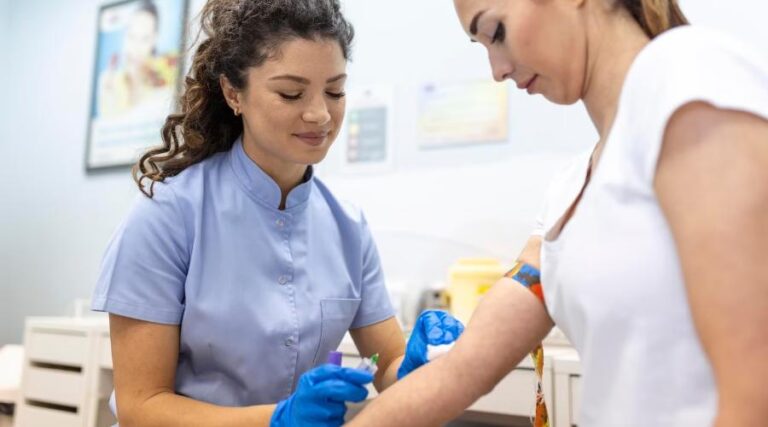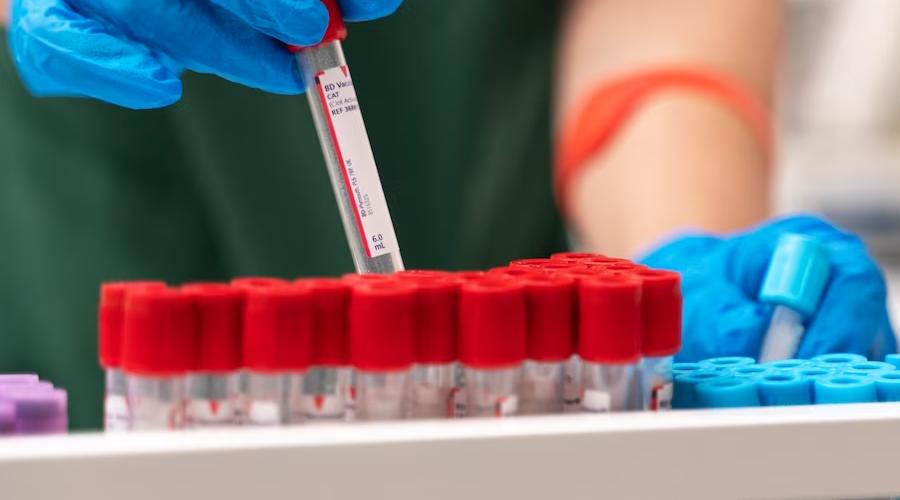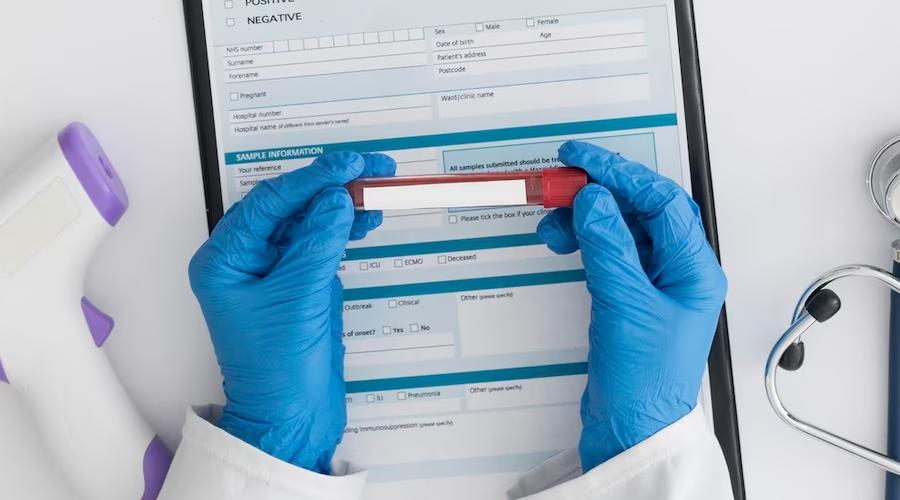
In a society where sexual wellness and expression are increasingly embraced, sex toys have gained popularity as tools for pleasure and intimacy. However, it’s essential to understand that along with the enjoyment they bring, there may also be potential risks, including the transmission of sexually transmitted infections (STIs). It’s important to understand the connection between the use of sex toys and STI risks and, most importantly, how regular STD testing in Southington, CT, can play a pivotal role in promoting sexual health.
Sexual intimacy and exploration are integral to human relationships, and sex toys have become increasingly popular tools to enhance pleasure and connection. These devices, designed to stimulate erogenous zones and facilitate sexual exploration, have evolved to cater to diverse preferences and lifestyles.
While sex toys offer many benefits, it’s essential to acknowledge that they can also pose potential risks, especially concerning the transmission of STIs. This section will explore how sex toys can be a vector for STI transmission and discuss why STD testing in Southington, CT, is important.
Sex toys are often used near the body’s most intimate areas and frequently come into contact with bodily fluids. This intimate connection presents a unique challenge in preventing STI transmission. Unlike other forms of sexual activity, where bodily fluids are typically exchanged directly between partners, sex toys can retain these fluids, creating an environment conducive to bacterial and viral survival. STD testing in Southington, CT, is important as a preventative measure.
One of the primary factors contributing to the potential for STI transmission through sex toys is the materials from which they are made, requiring regular STD testing in Southington, CT. Many sex toys use porous materials like rubber, jelly, or PVC. These porous surfaces can absorb bodily fluids, harboring bacteria and viruses even after washing with soap and water.
To minimize the risk of STI transmission, it is crucial to select sex toys made from non-porous materials, such as medical-grade silicone or glass. These non-porous materials are more resistant to bacterial retention and easier to clean thoroughly, reducing the likelihood of STI transmission between users.
Shared use of sex toys without proper cleaning or barriers can significantly increase the risk of STI transmission. When sex toys are used by multiple partners without adequate disinfection or STD testing in Southington, CT, they can be a conduit for pathogens between individuals. This risk is particularly heightened in situations where one or more partners have an existing STI, as the infection can be easily transmitted through the shared use of sex toys.
It is essential for sexually active individuals, especially those with multiple partners, to take precautionary measures to prevent STI transmission. Using condoms or other barriers with sex toys can provide additional protection and reduce the risk of STI transmission between partners.
One of the most effective ways to mitigate the risk of STI transmission through sex toys is through proper cleaning and maintenance. After each use, sex toys should be cleaned thoroughly using warm water, mild soap, or a specialized sex toy cleaner. Paying attention to any crevices, textured areas, or removable parts that may trap bodily fluids and bacteria is vital. Cleaning should be followed by complete drying and storage in a clean, dry, and cool place.
Avoid using harsh chemicals or alcohol-based cleaning agents on sex toys, as these can damage the toy’s surface and cause irritation to sensitive body areas. Instead, opt for cleaning products specifically designed for sex toys, which are formulated to be safe and effective. It’s also best to do regular STD testing in Southington, CT, to avoid risks.
Certain sex toys, particularly those made from less flexible materials, can cause microscopic tears or abrasions in the genital or anal tissues during use. These tiny openings provide an entry point for bacteria and viruses, increasing the risk of STI transmission. To reduce this risk, individuals should opt for softer and more flexible sex toys that minimize the potential for tissue damage.
In addition, using a water-based lubricant can also help reduce friction and minimize the risk of abrasions during sex toy use. It is essential to choose a lubricant that is compatible with the material of the sex toy to avoid damage. On top of that, STD testing in Southington, CT, is also essential for you and your partner.
STD testing in Southington, CT, is a priority for individuals and communities alike, and understanding the specific STIs that may be transmitted through sex toy use is crucial for promoting safe and responsible sexual practices. While many STIs can be transmitted through sexual contact, certain ones present higher risks in the context of sex toy use. Here are some specific STIs to be aware of:
Human Papillomavirus, commonly known as HPV, is among the most prevalent STIs globally. It is highly contagious and can be transmitted through skin-to-skin contact during sexual activity. While HPV is often associated with genital warts, many viruses are asymptomatic and may go unnoticed. Sex toy use can contribute to HPV transmission if the toys come into contact with infected skin and mucous membranes, especially in the genital and anal areas. Get STD testing in Southington, CT, if you experience symptoms.
The Herpes Simplex Virus (HSV) is responsible for oral herpes (HSV-1) and genital herpes (HSV-2). It can be transmitted through direct contact with infected skin or mucous membranes. Although HSV is most commonly transmitted through intimate contact, sex toys can act as a medium for viral transmission, particularly when shared between partners without adequate cleaning or protection. Oral sex toys, such as oral vibrators or tongue simulators, can pose specific risks for transmitting HSV-1.
Chlamydia is a bacterial infection that can affect the genital and rectal areas. It is easily transmitted through unprotected sexual contact, including using contaminated sex toys. If a person has chlamydia in their genital or anal area, sharing sex toys without proper cleaning can spread the infection to their partner(s). Go through STD testing in Southington, CT, as soon as possible if you have symptoms.
Gonorrhea is another bacterial infection affecting the genital, rectal, and throat areas. It can be transmitted through sexual contact with an infected person. Using shared sex toys without proper cleaning and protection can facilitate gonorrhea transmission, particularly if the toys come into contact with the infected bodily fluids of an individual carrying the bacteria.
Trichomoniasis is caused by a protozoan parasite called Trichomonas vaginalis. It primarily affects the genital area and can lead to discomfort and inflammation. Trichomoniasis is transmitted through sexual contact with an infected partner, including using contaminated sex toys.
While Human Immunodeficiency Virus (HIV) is primarily transmitted through the exchange of certain bodily fluids, such as blood, semen, vaginal fluids, and breast milk, the sharing of sex toys without cleaning or using barriers can potentially facilitate HIV transmission if the toy comes into contact with infected fluids.
Syphilis is a bacterial infection that can cause serious health complications if left untreated. It typically presents in stages and can affect various parts of the body. Syphilis can be transmitted through sexual contact, and sex toy use can contribute to the spread of the infection, particularly if there are open sores or lesions on the skin or mucous membranes.
Individuals need to be aware of the risks associated with sex toy use and the potential transmission of these specific STIs. Regular STD testing in Southington, CT, can be critical in detecting and addressing these infections early on. By being proactive and seeking regular testing, individuals can protect their health and that of their partners, fostering a community that prioritizes sexual wellness and safety.

Sex toys are diverse in design and function, catering to various preferences and desires. While they can add excitement and pleasure to intimate experiences, it is crucial to recognize that different sex toy types carry varying risks concerning STI transmission. Understanding these risks can empower individuals to make informed choices when selecting and using sex toys, ensuring a safe and enjoyable sexual experience.
Here are some common sex toy types and their associated transmission risks:
Vibrators and dildos are among the most popular sex toys designed for internal and external stimulation. These toys often have smooth surfaces that are relatively easier to clean. However, the risk of STI transmission still exists, especially when they are shared between partners without adequate cleaning or protection.
Sexually active individuals are encouraged to prioritize their sexual health through regular STD testing in Southington, CT. Local health clinics and centers offer discreet and confidential STD testing services, providing peace of mind and timely medical attention if necessary.
Anal toys like butt plugs and anal beads are specifically designed for anal stimulation. Due to the nature of the anal region, there is a higher risk of tissue damage during anal play, leading to an increased risk of STI transmission if the toys are shared between partners without proper cleaning.
Incorporating regular STD testing in Southington, CT, into one’s sexual health routine allows for proactive detection of STIs and timely medical care. This ensures the overall well-being of individuals and their partners.
Sex toys designed for oral stimulation, such as oral vibrators or tongue simulators, carry specific risks for transmitting oral STIs like herpes (HSV-1). When used for oral play, these toys can directly contact mucous membranes, potentially facilitating viral transmission.
By being proactive and seeking regular STD testing in Southington, CT, individuals take charge of their sexual health and well-being. Local health clinics and centers offer comprehensive STD testing services, enabling individuals to prioritize sexual wellness and safety.
Some sex toys are designed for vaginal or anal insertion and may have intricate textures or ridges. While these features enhance pleasure, they can also create challenges in terms of thorough cleaning. If improperly cleaned, these insertable toys can retain bacteria or viruses, increasing the risk of STI transmission.
To mitigate STI transmission risks, sexually active individuals are encouraged to use condoms or barriers during shared sex toy play. Additionally, regular STD testing in Southington, CT, provides individuals with peace of mind and timely medical attention if STIs are detected.
BDSM toys like paddles, whips, and restraints are used in power exchange dynamics and sensation play. Due to the potential for breaking the skin or causing abrasions, these toys can facilitate STI transmission if shared without proper cleaning and care.

Incorporating regular STD testing in Southington, CT, into one’s sexual health routine fosters a community that prioritizes sexual wellness and safety. In Southington, CT, individuals can access discreet and confidential STD testing services through local health clinics and centers.
Sex toys can enhance intimacy and pleasure, but it’s crucial to prioritize safety to prevent transmitting sexually transmitted infections (STIs). By adopting safer sex toy practices, individuals can minimize the risk of infection and enjoy their sexual experiences with confidence.
Here are some valuable tips to reduce STI risks when using sex toys:
Communication and consent are the cornerstones of healthy and fulfilling sexual experiences, especially when incorporating sex toys into intimate moments. Openly discussing desires, boundaries, and STI status with partners fosters a safe and respectful environment. Here’s why communication and consent are essential when using sex toys with partners:

Here are some compelling reasons why regular STD testing in Southington, CT, is crucial for promoting sexual health:
Exploring the connection between sex toys and STIs, understanding specific STI risks, and adopting =STD testing in Southington, CT, are essential to promoting sexual health and overall well-being. As a reputable healthcare provider, DOCS Urgent Care – Southington offers comprehensive testing options, ensuring individuals can get their results in 20 minutes or less. Contact us today to schedule an appointment.

During this surge in COVID-19 cases, our primary focus is meeting the high demand for tests, and we are seeing higher than usual wait times. This means we are unable to answer most phone calls. Please know that our teams are working very hard during this time to care for as many patients as safely as possible. Please click the button below for answers to common questions. We appreciate your understanding.